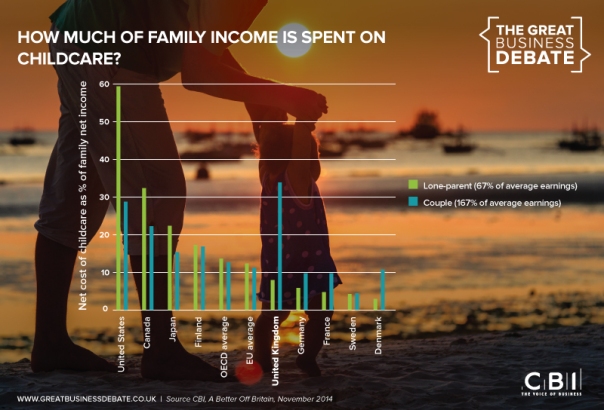In this guest post, Andy Bagnall of the CBI argues that businesses need to do more to encourage flexible working and promote employee diversity.
Back in 2013, a survey of CBI members found that almost nine in ten UK companies offer some form of flexible working – a figure worth celebrating since flexible working brings the labour market into reach for a greater, and more diverse, group of people.
But in a YouGov poll commissioned in November this year, we found that employees are still finding it difficult to balance work and family life. We found that 43 per cent of employees would feel uncomfortable asking their employer about working more flexibly, against 40 per cent saying they would feel comfortable. The figures were almost identical for men and women.
Asked how they find balancing work and family life, 61 per cent said easy and 38 per cent said difficult. Again, there was no significant difference between the responses from men and women.
There are both positives and negatives that can be taken from such figures, but there are clearly steps that both businesses and government can take to make further improvements in promoting flexible working and meaningful diversity policies.
The CBI’s recently released A Better Off Britain report calls upon UK businesses to:
- Adopt a presumption in favour of flexibility, from the job advert stage onwards
- Commit to meaningful diversity policies and, where possible, to publish aspirational diversity targets
- Show greater openness to job-sharing in more senior roles and ensuring recruitment processes maximise the diversity of shortlists
There is a clear call here for businesses to step up and implement these solid, actionable steps. But whilst businesses can do more, the government also has a role and one thing that it can do is help reduce the burden of childcare costs.
The infographic below shows that childcare is an increasing drag on families’ incomes. Middle income families now spend 34 per cent of their net income on childcare, and over 50 per cent of parents with a child under two would like to get a job or work more hours but the cost of childcare is a barrier.
The CBI is therefore calling on the Government to provide more help with childcare costs as soon as public finances allow, including extending the current 15 hours of free childcare for three and four year olds to children aged one and two, and extending maternity pay from 39 weeks to 52 weeks to close the gap between maternity leave and when free childcare becomes available.
Increasing the availability and acceptance of flexible working brings direct benefits to businesses since they can gain from the greater diversity of perspectives of their employees. But it is also good for both society and for how businesses are perceived in the communities in which they work.
Andy Bagnall is Director of Campaigns & Governance at the CBI, which is looking to encourage discussion about issues like this affecting business reputation through The Great Business Debate. With this campaign the CBI is bringing together voices from business, a diverse range of interest groups, and the wider public in various online and offline forums to have their say. If you’d like to hear more and state your own views, check out the campaign website and leave your thoughts, sign up to the campaign newsletter, and follow the campaign on twitter.
